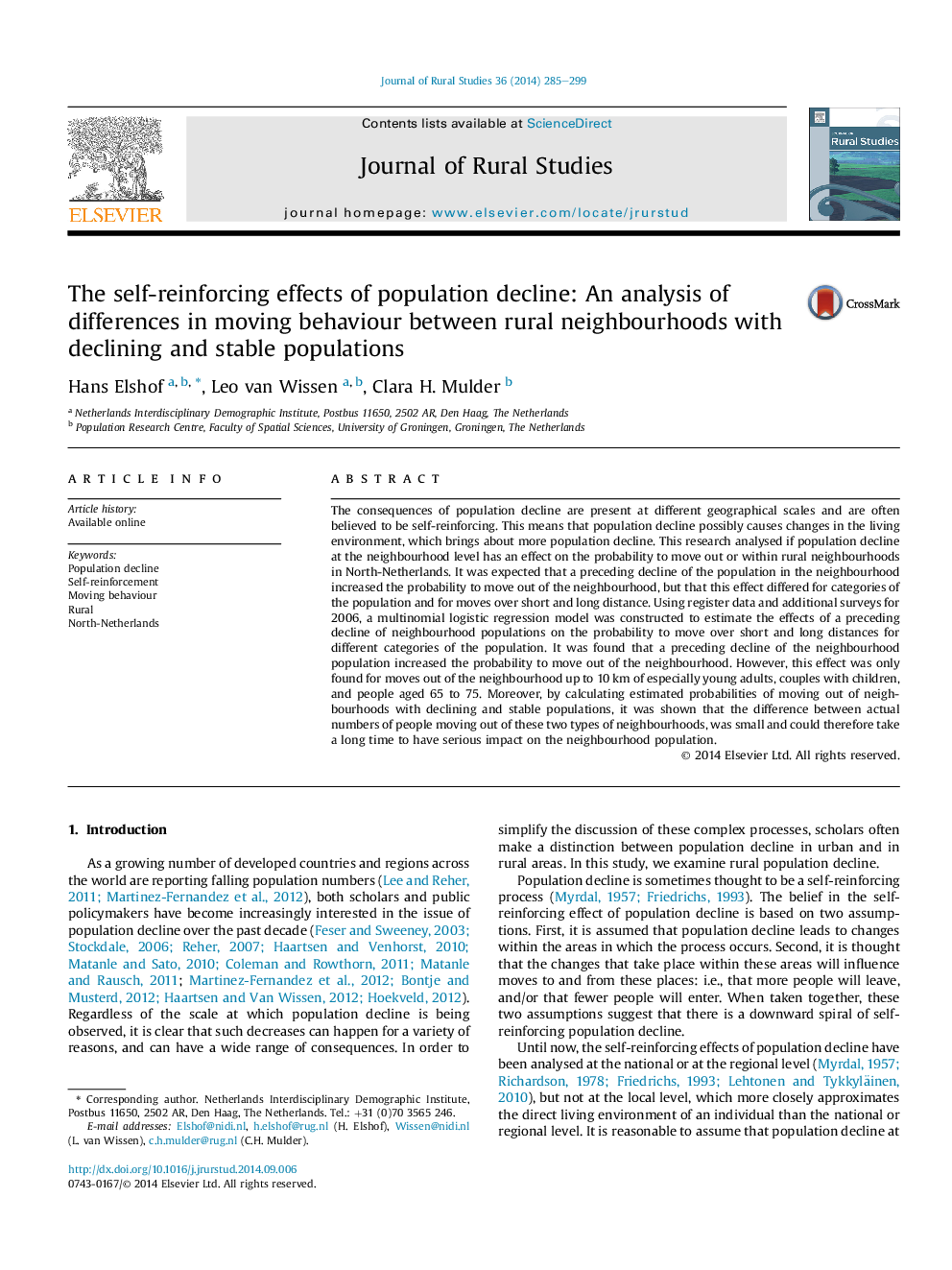| Article ID | Journal | Published Year | Pages | File Type |
|---|---|---|---|---|
| 6545755 | Journal of Rural Studies | 2014 | 15 Pages |
Abstract
The consequences of population decline are present at different geographical scales and are often believed to be self-reinforcing. This means that population decline possibly causes changes in the living environment, which brings about more population decline. This research analysed if population decline at the neighbourhood level has an effect on the probability to move out or within rural neighbourhoods in North-Netherlands. It was expected that a preceding decline of the population in the neighbourhood increased the probability to move out of the neighbourhood, but that this effect differed for categories of the population and for moves over short and long distance. Using register data and additional surveys for 2006, a multinomial logistic regression model was constructed to estimate the effects of a preceding decline of neighbourhood populations on the probability to move over short and long distances for different categories of the population. It was found that a preceding decline of the neighbourhood population increased the probability to move out of the neighbourhood. However, this effect was only found for moves out of the neighbourhood up to 10Â km of especially young adults, couples with children, and people aged 65 to 75. Moreover, by calculating estimated probabilities of moving out of neighbourhoods with declining and stable populations, it was shown that the difference between actual numbers of people moving out of these two types of neighbourhoods, was small and could therefore take a long time to have serious impact on the neighbourhood population.
Related Topics
Life Sciences
Agricultural and Biological Sciences
Forestry
Authors
Hans Elshof, Leo van Wissen, Clara H. Mulder,
